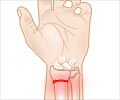Athletes had better steer clear of alcohol. Even moderate amounts affect recovery from athletic performance, with muscle performance loss doubling in those who drink alcohol.
Matt Barnes of the University of Massey, New Zealand, recruited recreational sportsmen and tested their muscle performance after a strenuous resistance training session, followed by either a moderate amount of alcohol in juice or the same energy content in juice alone. Using specialist equipment at the Institute of Food, Nutrition and Human Health, the athletes’ performance was measured at 36-hours and 60 hours later.“That’s two mornings and three mornings later,” Mr Barnes says. “With the alcohol the loss of muscle performance was far greater – nearly twice as much. Normally you would expect to see weakness or loss in performance after strenuous exercise but the alcohol really exacerbated that.
“This shows that if you drink even moderate levels of alcohol after you use your muscles strenuously you are impairing your ability to recover and I would say if you are serious about your sport, you shouldn’t be drinking alcohol in the post-match or recovery period.”
Exercise physiologist and Co-Director of Sport and Exercise Science at Massey Dr Steve Stannard is supervising Mr Barnes research. Dr Stannard says he began thinking of undertaking research on the effect of alcohol on athletic performance after organising a sport and alcohol conference in 2005.
“It struck me at the time that, whilst alcohol was commonly consumed after competition, there was very little research on whether alcohol affected the recovery process. Although many sports-people drink, rugby is the most obvious: they go after training or the match to the pub or club to socialise or celebrate. In fact some coaches encourage that – I’ve even been told matter-of-factly by a high profile coach that ‘the spirit of the team is at the bottom of the bottle’.”
Mr Barnes and Dr Stannard recruited men for the study to comply with ethical guidelines, and used what is considered at the high end of safe drinking levels for men of this size, around six to seven standard drinks over two to three hours.
Advertisement
Source-Medindia
GPL











